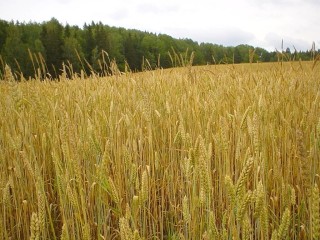- Archaeological News
-
 Image Credit: Rosendahl, Wikimedia Commons
Image Credit: Rosendahl, Wikimedia Commons
New Research Revisits Humanity Earliest Governments
A new study is challenging long-standing ideas about how the world’s first states emerged 5,000 years ago. Instead of agriculture in general, researchers argue that grain farming — wheat, barley, rice and maize — played the decisive role.
For most of human history, societies were small and relatively equal. Although agriculture began around 9,000 years ago, states did not appear until millennia later. This gap has puzzled scholars.
The new research suggests that early states formed only in regions where people cultivated cereal grains, because grains ripen predictably, grow above ground and can be easily stored — making them ideal for taxation. These taxes, the study argues, helped rulers build institutions, hierarchies and laws. Writing itself may have been invented to record these taxes.
Using global cultural data and a mathematical model, the researchers found that intensive agriculture — such as irrigation — was often the result of state formation, not the cause. By contrast, grain agriculture strongly predicted the later rise of states.
The study also notes that crops difficult to tax, such as fruits and tubers, tended to decline once states formed, as rulers favored food systems they could measure and control.
The findings also highlight a larger trend: changes in information systems — from writing to the printing press to modern digital technology — have always transformed how states function. Today, digital media, globalization, cryptocurrency and climate pressure are once again reshaping taxation, information control and agriculture.
According to the researchers, the pressures facing modern states echo the same forces that shaped humanity’s earliest governments thousands of years ago.
Published on: 25-11-2025
Edited by: Abdulmnam Samakie
Source: The Conversation